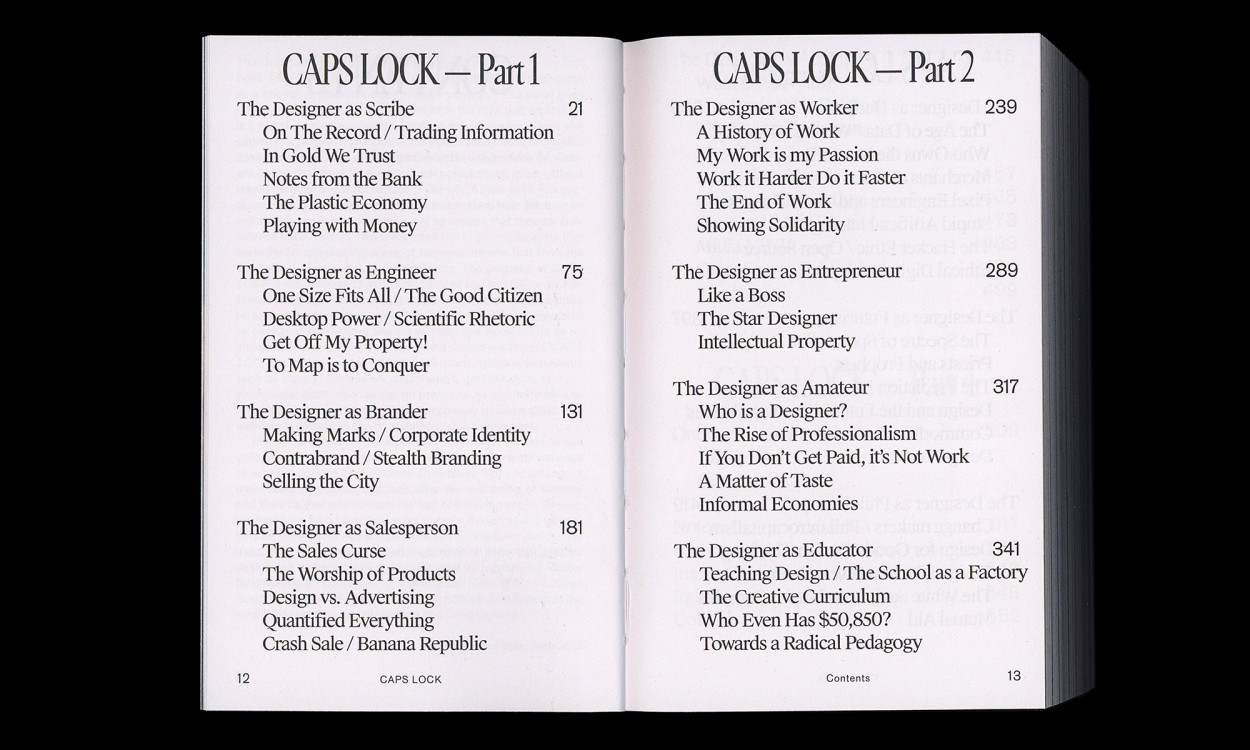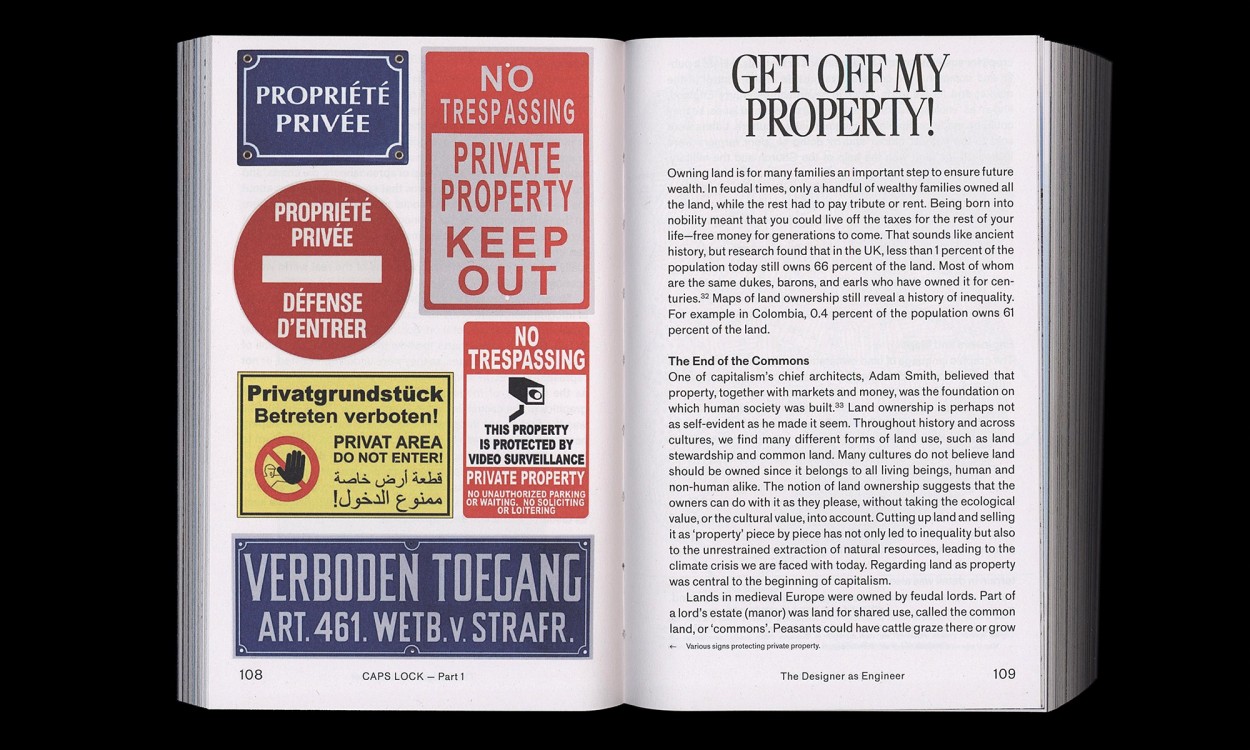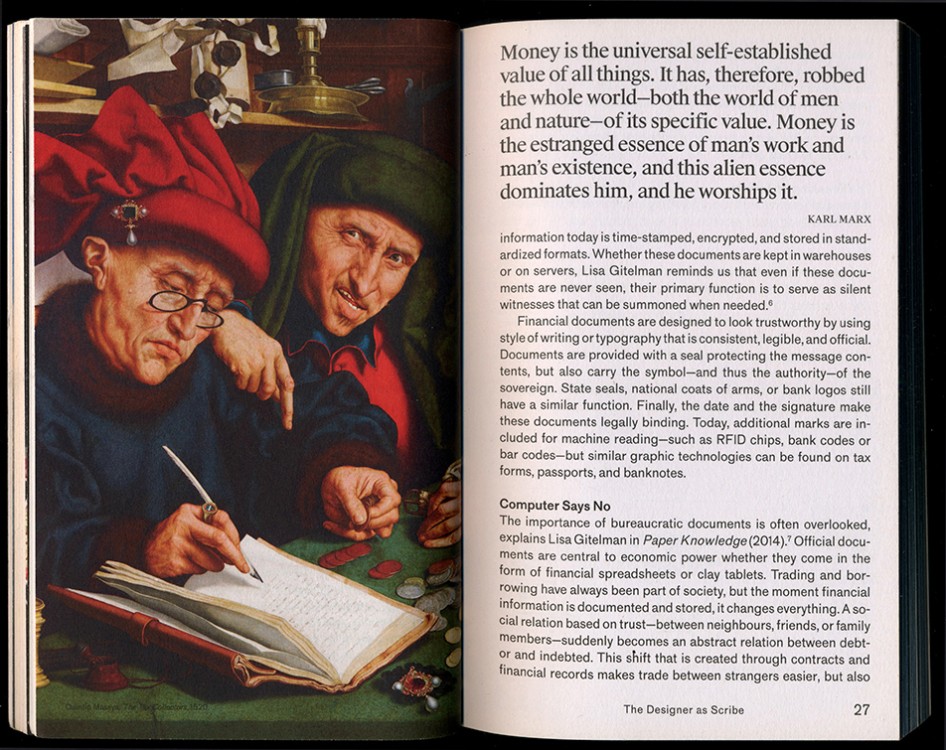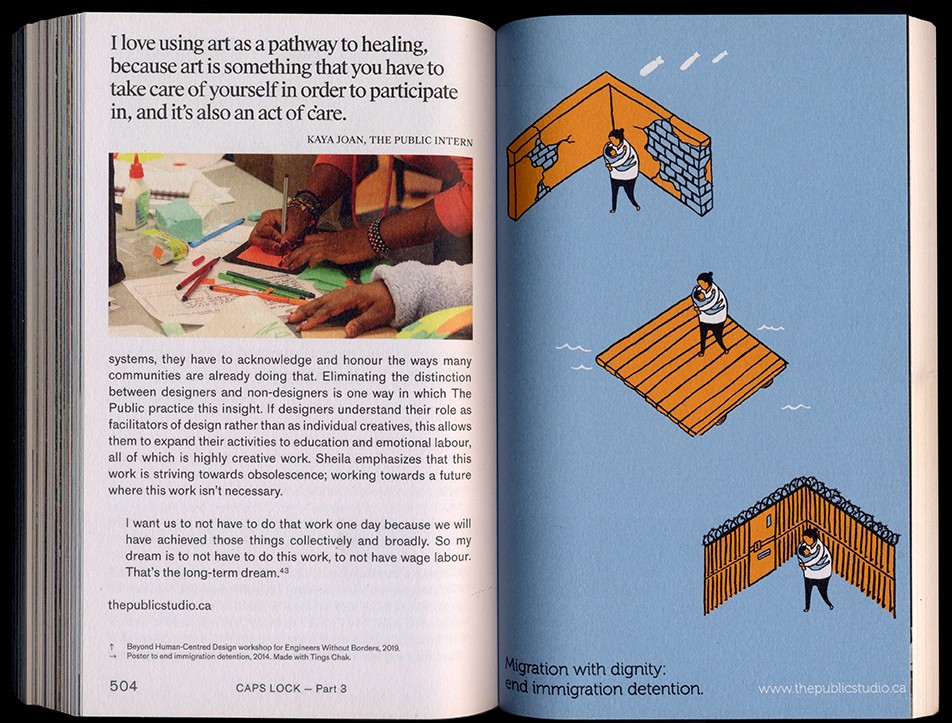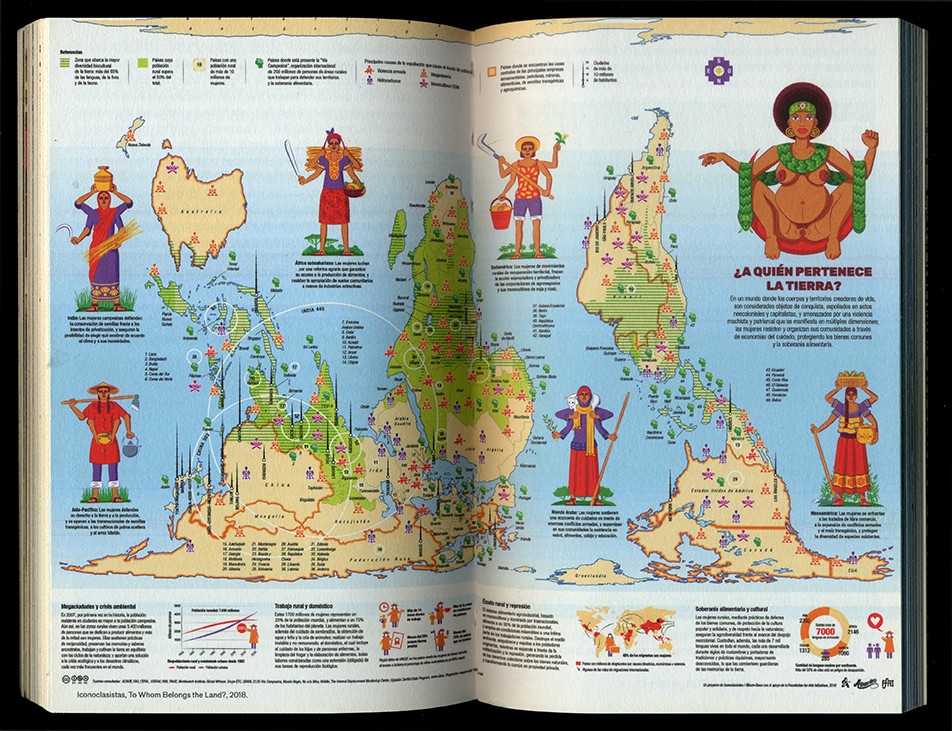CAPS LOCK
How capitalism took hold of graphic design, and how to escape from it
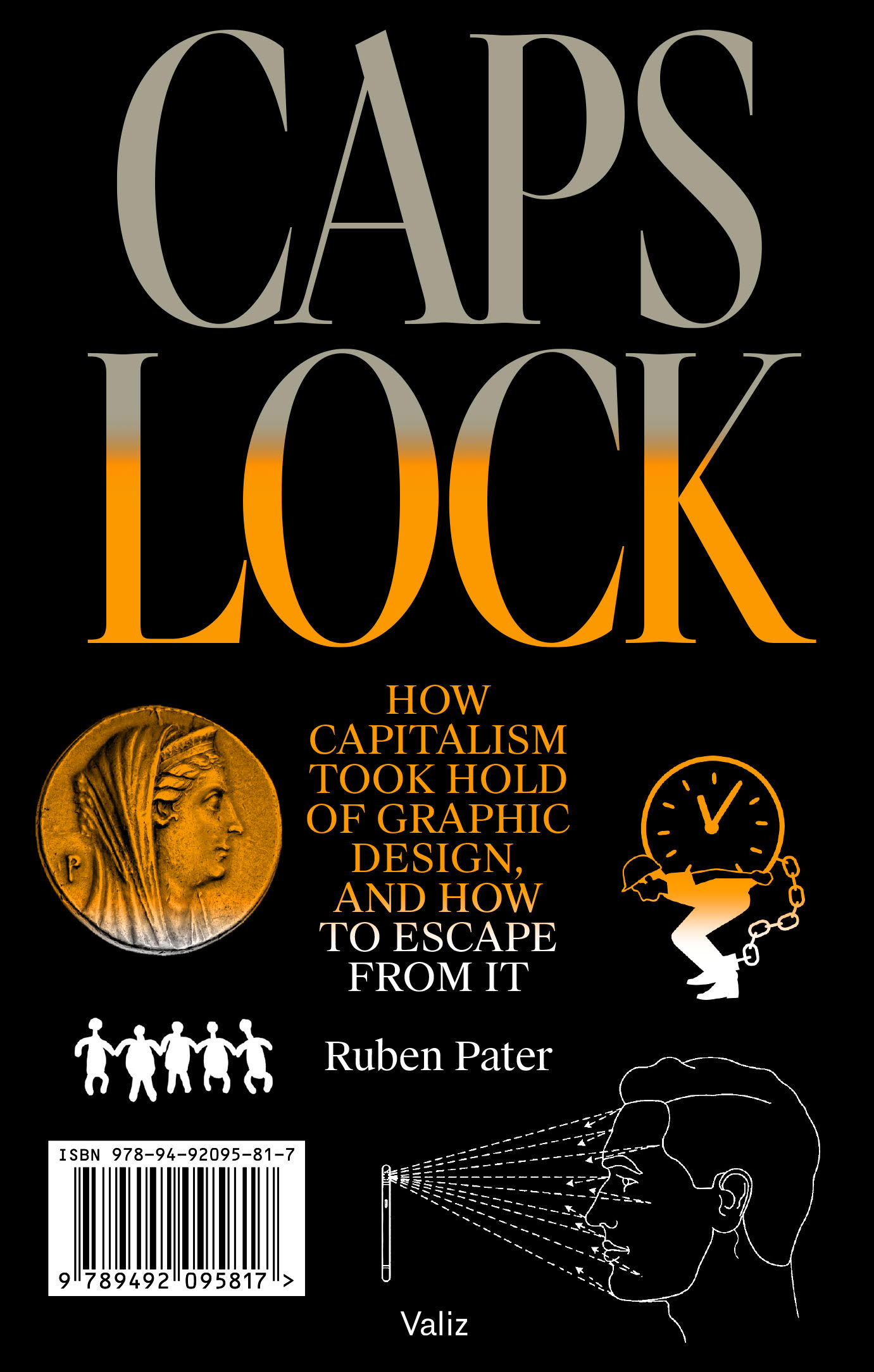
- Economic beginnings/concepts explained in an accessible way for designers, without jargon
- With examples from the practice of six design collectives that try to dismantle the relations between capitalism and design
- A source of inspiration for everyone in the design field: students, designers, educators (just like Ruben Paters previous book, The Politics of Design (2016))
- Selected as by the Student Jury as one of the Best Book Designs 2021!
- Winner of Dutch Design Award 2022
- Ruben Pater developed a CAPS LOCK educational toolkit, which can be downloaded for free here
Author: Ruben Pater
Design: Ruben Pater
August 2021, Valiz | Pb, 18,4 x 11,7 cm (h x w) | 552 pp. | English | ISBN 978-94-92095-81-7
Ruben Pater (1977, NL) was educated as a graphic designer, worked in several design studios, also independently, and as an educator (e.g. MA Royal Academy of Art, The Hague). With Untold Stories Pater makes critical work on the edge of graphic design, journalism and activism.
CAPS LOCK is an inspirational book full of sources for design students, educators and visual communicators all over the world, just like Rubens first book The Politics of Design (BIS, 2016). www.untold-stories.net; @unlisted_roots; @capitalslock
Press
- Watch a clip from the interview with Ruben Pater about CAPS LOCK on RTV Slovenija (5 October 2022)
- (Only in Slovenian) Read the interview with Ruben Pater about CAPS LOCK in Marketing Magazin (7 October 2022)
- Read the review of CAPS LOCK in Eye Magazine (excerpt from no. 103/2022)
- Read the interview with Ruben Pater on CAPS LOCK in étapes (March/April 2022)
- Listen to the conversation with Ruben Pater about CAPS LOCK in The Deep Dive Podcast (March 3rd 2022)
- Read the review in We Make Money not Art (February 25th 2022)
- (Only in Italian) Read the review Una panoramica sullultimo libro di Ruben Pater by Valeria Pilas in Graphicus (November 2021)
- Read The Daily Heller: Not Such Strange Bedfellows, an interview with Ruben Pater about CAPS LOCK by Steven Heller for Print Magazine (December 3rd 2021)
- Click here to watch the online webinar by Ruben Pater about CAPS LOCK at AIGA, the Professional Association for Design (November 16th 2021)
- Click here to watch the online lecture by Ruben Pater on CAPS LOCK, hosted by ELISAVA, Barcelona (November 27st 2021)
- Click here to watch the online book talk with Ruben Pater on CAPS LOCK, hosted by Index, NYC (October 1st 2021)
- Read In CAPS LOCK, Ruben Pater Untangles the Relationship Between Graphic Design and Capitalism, a review of CAPS LOCK, by Chris Westcott for AIGA, Eye on Design (published September 23rd 2021)
- Read the review of CAPS LOCK in Design and Culture (November 15th 2022)
Capitalism could not exist without the coins, notes, documents, graphics, interfaces, branding and advertisements; artefacts that have been (partly) created by graphic designers. Even anti-consumerist strategies such as social design and speculative design are being appropriated within capitalist societies to serve economic growth. It seems that design is locked in a system of exploitation and profit, a cycle that fosters inequality and the depletion of natural resources.
CAPS LOCK uses clear language and striking visual examples to show how graphic design and capitalism are inextricably linked. The book contains many case studies of designed objects related to capitalist societies and cultures, and also examines how the education and professional practice of (graphic) designers supports the market economy and how design practice is caught within that very system.
The content of CAPS LOCK is structured in chapters with titles of professions that designers can occupy (such as Educator; Engineer, Hacker, Futurist, Activist, etc.). These titles respond to the importance of not just how designers make work, but also how they perform daily economic and social roles.
Each chapter is divided into coherent articles in which diverse examples of objects and design practices are relayed. The book also features examples of radical design collectives, that work towards alternatives between design, community and reciprocity.
Also available as Ebook via this link

